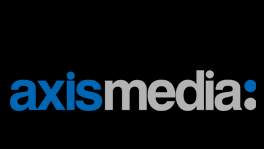Income tax and National Insurance
Self employed business owners pay income tax and National Insurance on their taxable profits. For the 2011/2012 tax year most self employed individuals pay income tax as follows:
- 0% on the first £7,475 (personal allowance)
- 20% on the next £35,000 (basic rate)
- 40% above £42,475 (higher rate threshold)
If you earn more than £42,475 you are a higher rate taxpayer; if you earn less you are a basic rate taxpayer.
Income tax paid by the self employed is exactly the same as that paid by other taxpayers, such as salary earners. However, the National Insurance position is completely different. For the current tax year, self employed business owners usually pay Class 4 National Insurance as follows:
- 0% on the first £7,225
- 9% on the next £35,250
- 2% above £42,475
Most self employed individuals with annual earnings over the small earnings exception limit of £5,315 must also pay Class 2 National Insurance of £2.50 per week or £130 per year.
Certain types of income are not subject to National Insurance, including interest from bank accounts (including business bank accounts) and rental income.
Business Profits over £100,000
When your taxable income exceeds £100,000 your income tax personal allowance is gradually withdrawn. For every additional £1 you earn, 50p of your personal allowance is taken away. So when your income reaches £114,950 your personal allowance will have completely disappeared. It also means that self employed taxpayers who earn between £100,000 and £114,950 face a marginal tax rate of 62%.
Older Self Employed Taxpayers
Older self employed taxpayers face a broadly similar burden to their younger counterparts but there are a few differences to be aware of:
- Taxpayers over state retirement age are exempt from both Class 2 and Class 4 National Insurance
- Taxpayers aged over 65 at the end of the relevant tax year are entitled to a higher personal allowance. These higher allowances are however withdrawn at the rate of 50p for each £1 of income in excess of £24,000 (2011/2012) Any taxpayer with income in excess of £29,230 does not benefit from these higher allowances at all.
- Married taxpayers and those in civil partnerships, where one spouse or partner was born before 6 April 1935, may also be entitled to a married couples allowance yielding a tax saving of up to £729.50 for 2011/12.




 What’s more, Andrew’s many years of experience means that there are few situations that he has not encountered meaning the advice he offers is based on a working knowledge not text book learning.
What’s more, Andrew’s many years of experience means that there are few situations that he has not encountered meaning the advice he offers is based on a working knowledge not text book learning.